Every high school kid has an idea for a dream career that probably won’t come true. My friends wanted to be singers or dancers or actors or film directors (I went to a performing arts school, obviously), but my dream was a bit odd. I wanted to move to Japan and live in a little hut and learn how to make swords. Surprisingly, sword-making isn’t easy to learn in small-town Canada, so I made up for it by taking Japanese language courses, reading Japanese history books, and studying Japanese martial arts (stop laughing, I was surprisingly good). At any rate, life happened and my obsession with all things Japan never bore fruit. Of course, I did end up moving to Asia, although for whatever reason I only made it as far as Thailand. But despite this, I’ve always remained interested in Japan, and finally – finally! – I got to go. M’Lady and I booked our tickets, planned an itinerary, and in late December, headed off. Here’s a few observations I made on visiting Japan, and how it compares to Thailand.
First of all, our itinerary was thus: we flew into Osaka and immediately took the train to Kyoto, where we stayed for a few days. We did a day trip to Kinosaki-onsen, a day trip to Nara/Osaka, and then left for a little village called Takayama, where we stayed two nights, including a visit to the snowy village of Shirakawago. After that we headed into Tokyo where we spent the last five days of our trip. Long story short – we had a great trip, saw lots of cool stuff and good friends, ate an outrageous amount of food, and came back with our bags bursting from all the snacks and souvenirs we picked up.
Most of the travel planning we did was with the help of my buddy Chris, who runs the site InsideKyoto.com. His advice was invaluable as the dude is a walking, talking fountain of knowledge on Japan, which is good considering he writes the Lonely Planet guide to the place. He also hooked us up with a half-day walking tour of Tokyo through a company called Discover Japan Tours. The owner, Yosuke, was extremely nice and clearly loved showing people around his city, and we had a great day out with him. If you’re heading to Japan and want a bit of help, I can recommend both companies without hesitation.
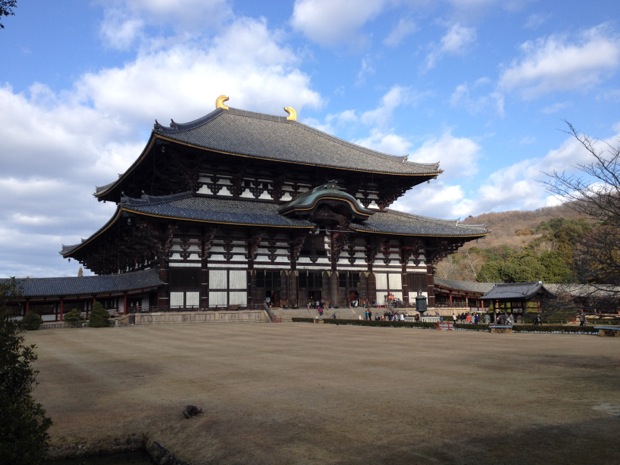
Todai-ji in Nara. It’s hard to describe just how friggin’ massive this place was. Stunning.
But anyway, the first thing one should keep in mind about Japan is that it’s not as crazy, ludicrously expensive as you think it is. Sure, it’s an expensive country, but if you’re careful and spend a bit of time, you can get through the day spending not much more than you would in any big city. M’Lady and I managed to find plenty of nice meals which cost about $20 for two of us; using the subway and bus systems is pretty easy and only costs a few bucks per trip; and hotels are totally manageable if you’re okay in a basic 3-star inn. However, this is great when you’re only eating three times a day and taking one or two subway trips, but it adds up fast if you eat a lot (which we did), take multiple trips (which we also did), or want to spoil yourselves with luxury accommodation (which we didn’t).
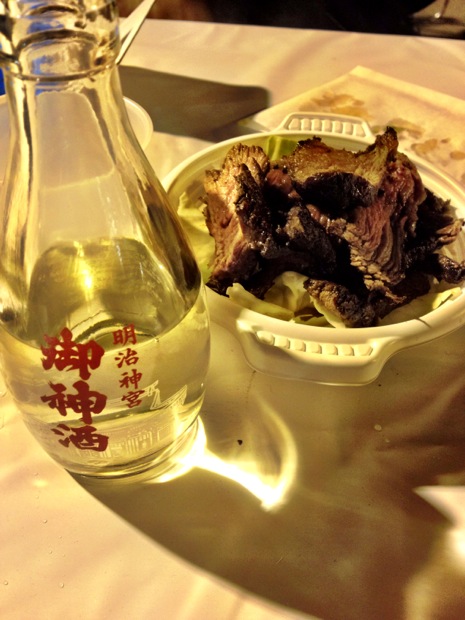
Tokyo street food. Meat and hot sake, oh yeahhh.
One thing I’ve always thought about Thailand is that they’re extremely lucky to have the “Land of Smiles” moniker stuck to them. Not that I don’t think Thai people are friendly, just that, personally, I don’t think they’re any more or less friendly that most people you’d meet. The same goes for Japan – everyone I met was unfailingly polite, but not slobberingly so. One thing I did notice was that Japanese people in the role of service clerks – at least the ones I talked to – had pretty poor English skills when compared to Thailand. Simple questions were met with stone-frozen faces, somewhere between abject terror and total confusion. In Thailand, the English is generally much better, seemingly in contrast to the annual ranking on the Education First English Proficiency Index. Of course this is a broad generalization, but at least in Thailand you’ll get a few words and plenty of sign language to help you out.
All that said, here’s a quick list:
Things that Thailand does better than Japan
Cheap food. Japan has cheapER food, but not CHEAP food. In Thailand there are a vast range of prices you can pay for a meal, but that same range in Japan is quite a bit narrower.
A variety of food. Okay, this may be unfair because I was only a tourist and didn’t know ‘the right’ places to go, but I think we ate at a pretty wide variety of places. It was all good, but after a while it got kind of boring. No spice, not a lot of variety. In Thailand it’s easy to jump right into the culinary street food culture as soon as you step outside your hotel, no experience necessary.
Transport. In Japan you basically have bus, train, and taxi. Buses are okay but geographically limited; taxis are great but way too expensive (flagfall in Bangkok: 35 baht. flagflall in Tokyo: 240 baht); and trains…. Well, the train system is a marvel of engineering, but unless your destination is pretty close to the train station, you’re looking at a lot of walking. The place we were staying at in Tokyo was a good 12 minute walk from the train station, and when it’s 2°C and the wind is blowing, it’s not a pleasant walk. In Thailand, there would be motorcycle taxis and tuk-tuks waiting to whisk you home for less than a buck.
English: Again, not a blanket statement, only my observation, but it seemed that the average man-on-the-street in Tokyo spoke poorer English than in Bangkok.
Non-smoking. Some may not notice or care, but restaurants/bars that allow smoking just reek, and I’ll go far out of my way to avoid them. Bangkok’s no-smoking law is one of the few laws that people (mostly) follow, but in Tokyo, it’s rare to find a place that doesn’t have smoking. If they do, it’s a ‘non smoking’ table – often right next to a smoking one.
Things that Japan does better than Thailand
Stored value cards. The Pasmo card is kind of like the BTS Rabbit card in Bangkok, but you can use it on the trains, buses, and in a huge variety of stores.
Infrastructure. Maybe not fair to compare two very different countries on the same scale, but the sidewalks were wide, even, and free from potholes, every light signal worked, construction zones were well-marked and guarded, and the trains were on time, to the second.
Public art. Bangkok hasn’t even tried to install any art or beautification projects. A few ragged statues here and there don’t count. In Tokyo there was the Maman in Roppongi Hills, murals on walls and buildings, and not an insignificant number of art, sculpture, and statuary in most office lobbies.
Tourist scams. Or rather, lack of them. I never once got approached by a tout; never had a taxi driver try to rip me off; never got charged to use a public bathroom; and never had to pay more than a local to enter a tourist attraction.
So, just a few insights now that I’m back. I really do like Japan and hope to go back one day, but despite my fascination with swords and Japanese history, I’m not sure I could live there unless I had a really good reason. It was very clean and organized…almost to the point of being clinical, and I found one thing I missed the most was Bangkok’s general sense of organized chaos. It’s just a bit more exciting.
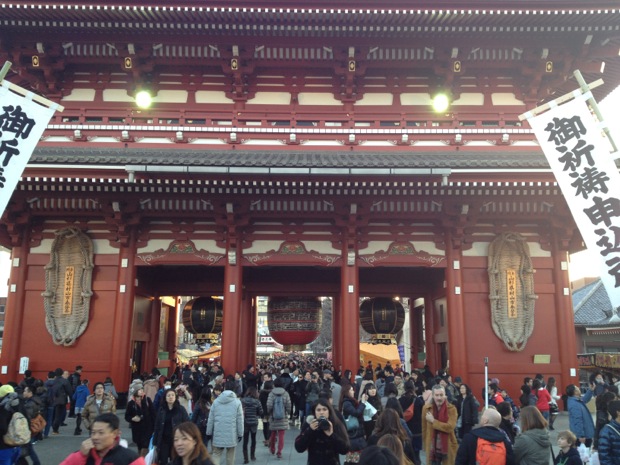
Harajuku Temple in Tokyo. Apparently it’s very important.
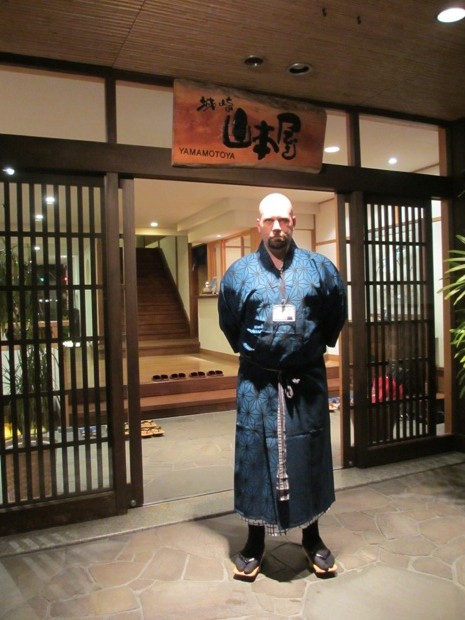
in Kinosaki-onsen in my full yukata bathrobe getup trying to look tough and failing. Those wooden geta sandals are hard to walk in.
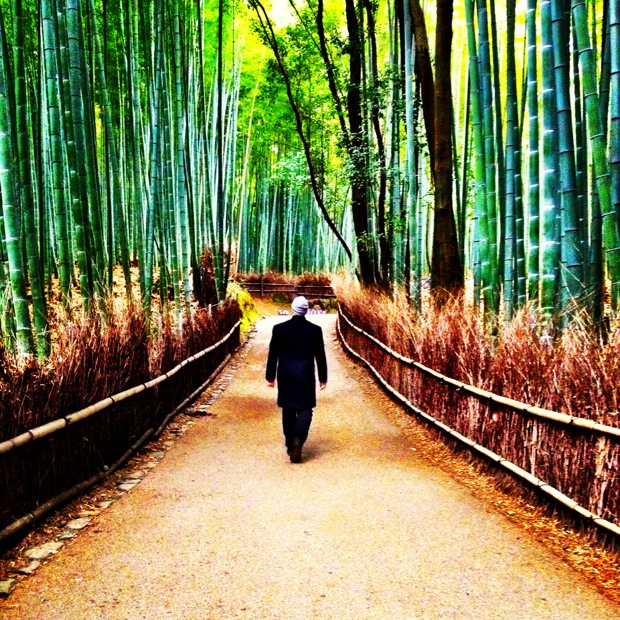
- Walking in the bamboo grove just outside of Kyoto.
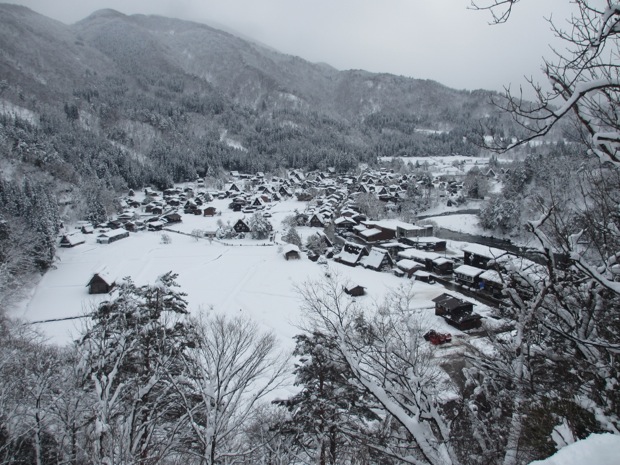
Shirakawago, stunningly beautiful in the winter snow.
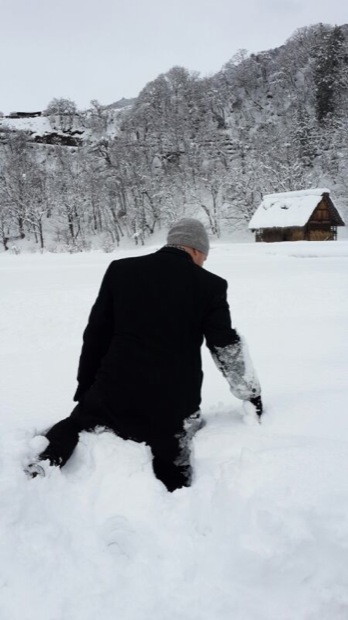
Snow is fun for a few hours, but then I remembered what it’s like for 3 straight months, and quickly grew tired.
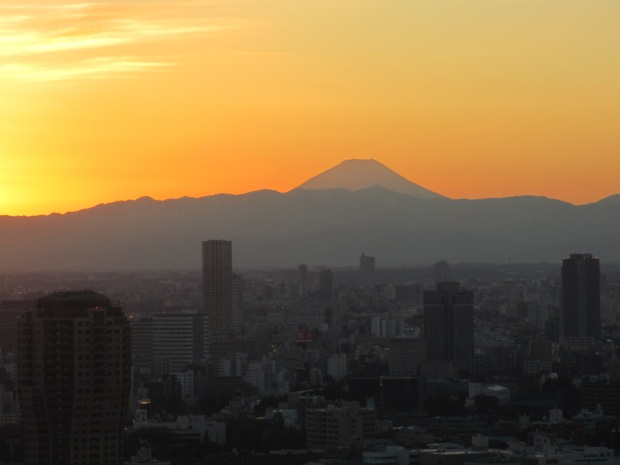
Mt. Fuji from the Tokyo Skytree. Not bad.


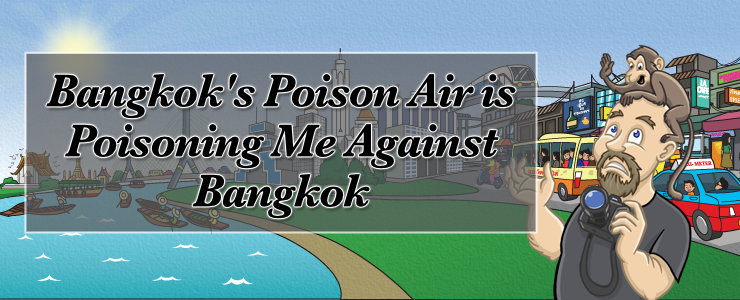
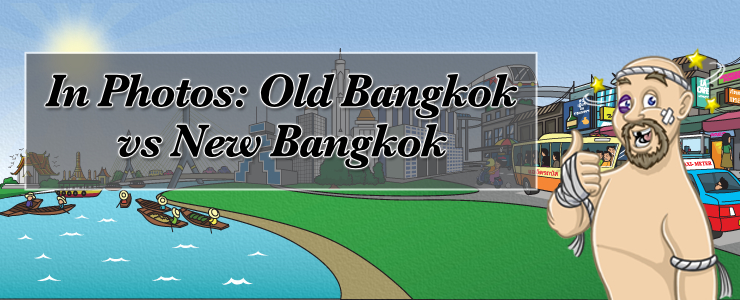
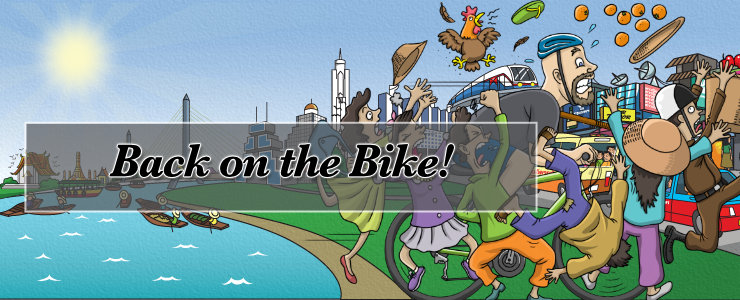
Not a single mention of hentai? Censorship!
*holds fingers to cheek, tilts head, blinks several times* “Have I been bad?”
Enjoyed the write up Greg. If only they could combine both countries together into one clean and inexpensive Thaipan!
Er, it’s called Taiwan. Prices infrastructure geography climate mid point between Japan and Thailand.
Totally agree with all your points. Tokyo is clean and organized to the point of looking boring by comparison to Bangkok, at least on the surface.
Also, I found the sight or overworked salarymen dozing off on the trains a bit depressing. Yes, people are wealthier but they definitely don’t look happier.
Thanks Greg. Indeed, there’s a point where “clean & organized” can get a bit too much. I think of Bangkok like the aftermath of a really messy club sandwich – it may not look too good, but it sure tastes nice. 🙂
Hi Greg, very interesting post. I didn’t know you studied Japanese!
My Japanese friends have told me that they spend a lot of time studying English grammar from junior high school and up, but they rarely get a chance to practice speaking and so are very “shy” when faced with a foreigner who speaks English. The Japanese are very modest and hold themselves to very high standards. It’s probably the pressure to perform that causes them to freeze up and why their spoken English pales in comparison to their ranking in the English Proficiency index.
I see martial law has been enacted in Thailand. Take care of yourself!
Thanks Brennan, good points. And yeah…things in Thailand just keep getting more and more confusing. Hope that’s a light at the end of the tunnel and not a train! 🙂
Garbage. Now that’s an English word that sums up much of your observations. Please give up writing and go back to playing with swords
Thank you, Shonto! A polite and well thought out comment that reveals much about your character. I’ll be over here playing with swords if you’d like to give me advice on how to properly perform 切腹.
LOL! There’s always one booger in the pudding…
I think comparing the “tourist scam” thing is ridiculous, but all tourist bloggers do it. I’ve read how people compare tourist scamming between Thailand and Germany! The point of ripping off tourists is because some countries have a much much poorer population than the tourists; they think that you’re rich and they sometimes try to charge more. It happens everywhere in the emerging tourist destination, Laos, Cambodia and Vietnam (which gets really bad report about it). I traveled in China 20 years ago and it was so bad because China back then was so poor. Come back and talk about tourist scamming when Thailand is as rich as Hong Kong or Japan.
Another thing is about “land of smile thing” — this was the epithet Thailand got when there were only a few million tourists annually. Now the annual tourist arrival is 25-30 millions. And these tourists are not polite, indulging in so much sex and parties to the point that it tarnishes the country’s image. The Thai people is famed for their tolerant of gays and homosexuals; and their Buddhist belief condones prostitution (for they think that being born poor is resulted from past karma and they do not judge people who take up the trade). But sex tourists and seedy foreigners take advantage from their liberal and forgiving character — and they keep posting about their negative image. It’s the foreigners who keep asking “why Thailand has so many ladyboys or hookers?”
No doubt Thais sometimes do not smile at tourists. If the same thing happened in Japan, the japanese would surely kick everybody out — chanting “kairo, kairo gaijin” everytime they see a tourist. Japan is a society dominated by a singer racial group. They won’t tolerate bad behaviors that tourist show towards their women.
Hey Greg! I was Googling something related to Japan and found this post. I just returned from Tokyo yesterday and I am happy to say that my experiences were a little better than yours — at least as far as English and smoking goes. Almost everyone we talked to could speak enough English to do their job (that is, check us into our room or sell us food). And every restaurant and hotel we stayed in were non-smoking. There are smoking “boxes” (small rooms) everywhere, so it was very rare that we actually saw anyone smoking. Both cases were a very welcome surprise. And yes, the trains are on time and the sidewalks are walkable. Tokyo is a lovely city and I imagine it will continue to improve as we get closer to the 2020 Olympics.
Hey Stuart, great to hear! I loved, love, loved Japan, but the smoking got to me a bit…glad to hear it’s gotten better! It’s funny, when I was in high school, speaking English was such a huge advantage…now it’s like “Yeah, everyone can speak English, what else can you do?”
There both special in there own ways …
Depends i guess on what your looking for.
I would rather live in thailand just because of the cost of living and the street food;)
Japan is awesome super clean but very expensive.